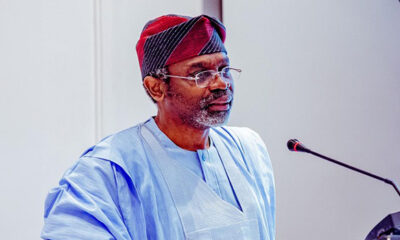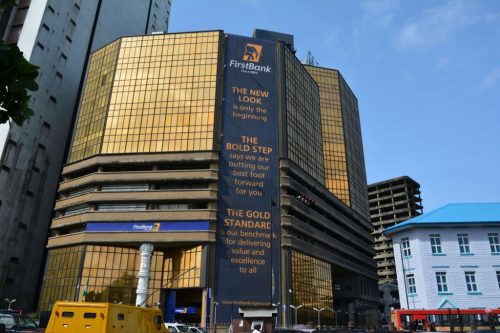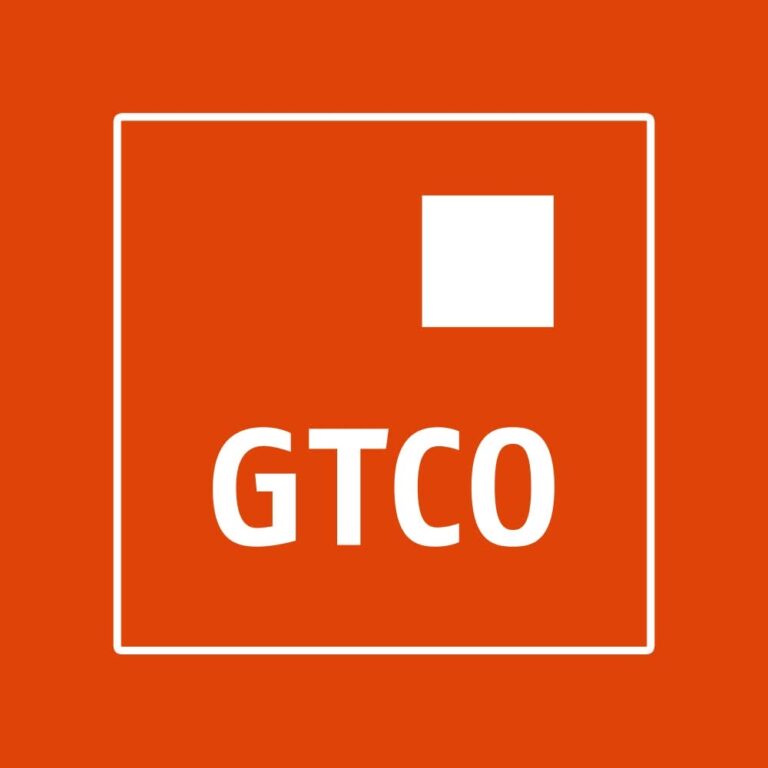First Bank of Nigeria Limited created FirstSME Account to add to its SME product family in support of small and medium scale business owners by sustaining and expanding their business.
AMAKA IFEAKANDU looks at what the facility offers and how SME owners can key in to boost their businesses.
There is no doubt that Small and Medium-scale Enterprises (SMEs) are essential for the rapid and sustained economic growth and development of any nation, including Nigeria, Africa, and other growing countries of the world. First Bank of Nigeria Limited, the nation’s most valuable bank brand, has over the years shown commitment towards the success and growth of SMEs business in Nigeria.
The bank has severally introduced different customized products to provide solutions that would grow SMEs in the country. Given that the SMEs industry is the backbone of economic development and the major contributor to employment opportunities and export growth, First Bank is committed to ensuring the sector sustains business growth by providing all the necessary financial support needed to grow their businesses and Nigeria’s economy at large.
Although the SME sector is awash with various industries and businesses, FirstBank is always at the forefront of packaging products and services that suit their various businesses. The bank, which has been in existence for over 127 years, has been a pillar of support to businesses in Nigeria and always develops the right products to provide flexible and dependable services that would help SMEs achieve the expected growth profile in all areas of their business lines.
FirstSME Account
The FirstBank’s leading SME Initiative – FirstSME account – was specifically created on August 2020, to support SMEs towards the sustenance and expansion of their businesses.
The FirstSME account, which comes in two variants – FirstSME Classic and First SME Deluxe – is offered to SMEs irrespective of industry and a tailor-made current account with a clear value proposition aimed at harnessing the huge opportunities available in the SME sector in Nigeria.
The product also exposes SMEs to a wide range of services that are essential for their continued growth and playing their roles in contributing to national development.
Apart from supporting SMEs, FirstSME account is also available to all non-individual entities like Limited Liability Companies, Public sector institutions, Enterprises/Sole proprietorships, Partnerships & Associations, Religious Bodies, Traders NGOs.
Benefits to customers
FirstSME account has been beneficial to a lot of companies, especially SMEs, in terms enhancing the capacity to sustain growth. The major benefits of these accounts include; access to Temporary OverDrafts (TODs) and other facilities subject to meeting Risk Adjustment Capital (RAC) of each product; immediate enrollment on all digital platforms; free access to FirstBank SME events; free access to extensive business promotional and networking opportunities on the SMEConnect portal; access to a wide range of discounted and promotional offers and access to SMEConnect.
Other opportunities
Other available opportunity for operating the FirstSME account is its connection to the SMEConnect initiative of FirstBank which is a platform through which SMEs access the bank’s unique description that will equip them with the essential tools required for the growth of their business.
The SMEConnect portal is also designed to help SMEs identify various gaps affecting the growth of their business. Beyond financial support, SMEConnect offers strategic advisory services, business seminars periodic updates as well as information that will guide you in growing your business.
Importance of SMEConnect
SMEConnect is created to bring under one umbrella relevant resources, products, and services aimed at helping SMEs in Nigeria. FirstBank has tailored-made products targeted at the specific needs of SMEs in Nigeria. These loan products have been designed for financing the activities of Small and Medium Enterprises (SMEs) under the U-First Scheme
The leading financial institution also provides Business Advisory and Support services and business-oriented credit access, customer/market, financing structure, access/availability of raw materials sales/cash flow projections, marketing/distribution/logistics, and business strategic plan.
The platform provides other features including the SME Connect blog, business categories, e-newsletter, special offer,s and upcoming events and programme.
Accessibility/criteria for opening an account
The FirstSME classic account is specifically designed to support small-scale enterprises to grow and scale up their business with a minimum opening and operating balance of N50,000 and turnover limit caps at N100 mIllion with an annual maintenance charge on the excess at 0.50k/mile.
The account also attracts a Zero/mile annual maintenance charge subject to minimum operating balance and turnover limit.
But on the other hand, the FirstSME Deluxe account expects holders to have a minimum opening and operating balance of N500,000 and N1 million respectively with zero annual maintenance charge subject to minimum operating balance and with no turnover limit caps.
FirstSME Connect’s scope of coverage
FirstBank’s SMEConnect services cover small/medium scale manufacturing firms, merchants (both suppliers, distributors), professional firms including law, consulting, audit, agricultural, Churches, Mosques, and NGOs whose annual debit turnover is between N5 million and N500 million.
SMEs and FirstBank’s FirstSMEs account
The FirstBank’s FirstSME account is unique when compared with other SMEs accounts operating in the nation’s banking industry and the bank is passionate about helping SMEs to grow on all fronts
Another thing that makes the product stands out from products of other banks is that FirstSME customers get to enjoy services such as; zero account maintenance charge, access to webinar/training, various credit facilities, workplace resources, access to SMEConnect portal and directory and It is specially made for MSMEs and SMEs.
SMEs’ importance to FirstBank
Across the globe and Nigeria in particular, SMEs are known to be responsible for the majority of new jobs created and they are crucial to Nigeria’s success in the global economy, in so many ways namely: For government, SMEs, contribute to wealth creation and generate tax revenues; in business, SMEs represent an important source of innovation and in the society, they are an important source of employment.
Furthermore, SMEs drive consumption because they operate in every sector of the economy, and they have extensive local knowledge of resources, supply patterns, and purchasing trends. In the same vein, the sector constitutes an important source of local supply and service provisions to larger corporations and makes a significant contribution to the revenue profile of most financial institutions. The SME sector stimulates growth and development within the economy.
NBS data
Available data from the Nigeria Bureau of Statistics (NBS) showed that SMEs in Nigeria have contributed about 48 percent of the national GDP in the last five years, accounting for 96 percent of business and 84 percent employment. With about 1.7 million people, the sector accounted for about 50 percent of the industrial jobs. In other words, SMEs is one of the sectors that cannot be ignored in any given country
These also imply that First Bank of Nigeria Limited understands what it takes to turn around the nation’s economy, knowing fully well that supporting the SMEs will bring multiple effects on individuals, society, and the economy in general.
The bank also has a deeper understanding that providing support, loans facilities, and training to SMEs through SMEConnect would not only help their business to thrive but increase employment opportunities, reduce the high rate of crime, open doors for more investments in the country and bring a return on investment and increase individual’s ability to save.
Impacts beneficiaries/economy
The FirstBank FirstSME account will go a long way to reducing the cost of operating corporate accounts which frees up funds for the beneficiaries to grow their businesses faster. The resultant effect on the economy is the increased growth of SMEs.
Challenges of SMEs
Without any iota of doubt, the SMEs in the country is faced with different challenges ranging from poor capital structure, high cost of production, limited access to long term funds, poor business continuity/succession plan, weak value chain: supply, distribution, logistics, poor managerial and technical skills to lack of access to the international market.
The FirstBank’s FirstSME account has provided an answer to some of the SMEs challenges by its readiness and commitment to providing the Nigerian SMEs with the necessary support needed to grow their various businesses
In all, for any SMEs company to move its business to the next level- both locally and internationally-, such a business owner needs to open the FirstSME account to avail him/herself of all the advantages provided by First Bank of Nigeria through its SMEConnect.
Operating the FirstSME account is one step away from any form of distress, as all the training opportunities from SMEconnect and credit facilities embedded in the account will help to revive the company and place it on the path of growth.

 BIG STORY2 days ago
BIG STORY2 days ago
 BIG STORY1 day ago
BIG STORY1 day ago
 BIG STORY2 days ago
BIG STORY2 days ago
 BIG STORY4 days ago
BIG STORY4 days ago
 BIG STORY2 days ago
BIG STORY2 days ago
 BIG STORY1 day ago
BIG STORY1 day ago
 BIG STORY1 day ago
BIG STORY1 day ago
 BIG STORY4 days ago
BIG STORY4 days ago
























